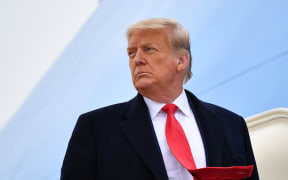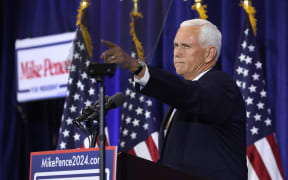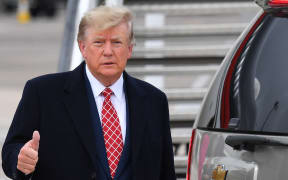By Anthony Zurcher for the BBC
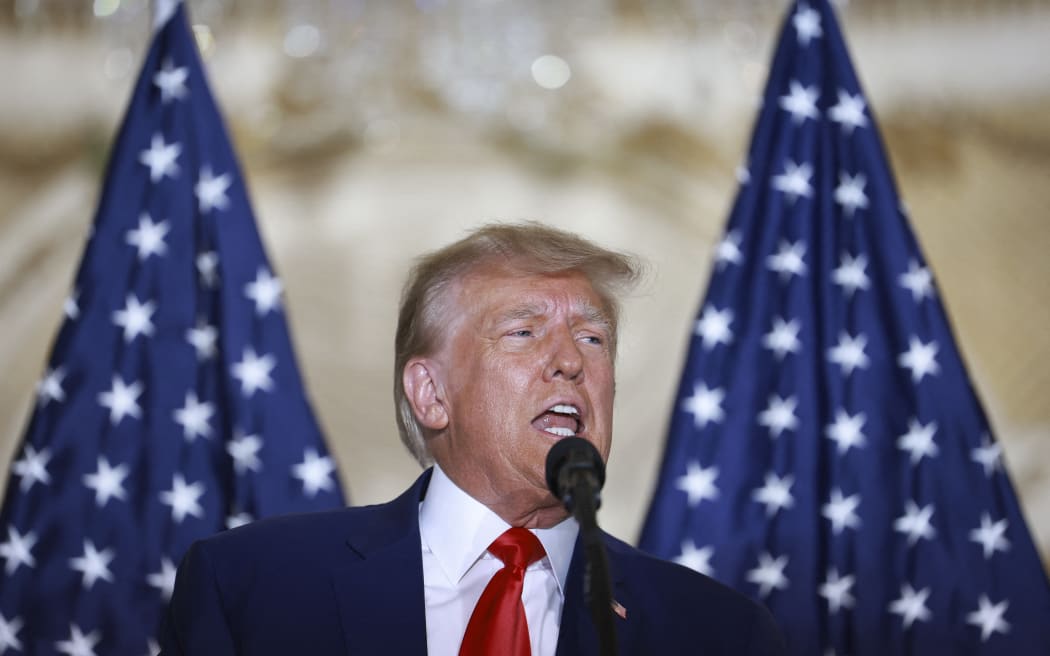
Donald Trump has said he is not guilty to each of the 34 charges against him. Photo: AFP / Joe Raedle
Donald Trump's indictment on federal charges has been unsealed, and the full scope of the case against the former president for mishandling classified documents is coming into view.
Each of those counts contains penalties that include substantial fines and the possibility of years in prison.
While leading Republicans dismiss it as a political prosecution, some legal experts insist the indictment sets out a strong case.
"It's a slam dunk," Diana Florence, a former prosecutor in the Manhattan District Attorney's Office, told the BBC.
"Here's why: It's got everything. It's got videos. It's got recorded conversations. It's got lower level employees who are testifying."
Here are some of the key revelations, and why they could be damaging.
Missing documents included nuclear secrets
Perhaps the most dramatic portion of the indictment lists the 31 documents Trump is alleged to have possessed at Mar-a-Lago, his Florida resort.
They include details of US nuclear weapons programmes, the potential vulnerabilities of the US and its allies, and US plans for retaliatory military attacks.
The indictment warns:
"The disclosure of these classified documents could put at risk the national security of the United States, foreign relations, the safety of the United States military and human sources, and the continued viability of sensitive intelligence collection methods."
That's an important assertion, given that to prove the charges that Trump violated the Espionage Act, prosecutors will have to demonstrate that Trump illegally possessed sensitive national defence information.
The details of the documents could also be politically damaging to Trump.
Republicans, including some of Trump's presidential rivals, rushed to his defence on Thursday local time as news of the indictment first broke.
While they may still take issue with what they view as a politically motivated prosecution, they may find it more difficult to explain why Trump held onto such sensitive national security after leaving the White House.
Trump showed US military plans to visitors
The indictment offers two specific instances Trump was allegedly willing to show classified documents to people who did not have adequate security clearances.
The first involves a recording of the former president talking on 21 July 2021, to a writer, a publisher and two members of his staff.
He told them about a secret US plan of attack against a country that is not named but believed to be Iran.
According to the indictment:
"Trump told the individuals that the plan was 'highly confidential' and 'secret'. Trump also said, 'As president I could have declassified it,' and 'Now, I can't, you know, but this is still a secret."
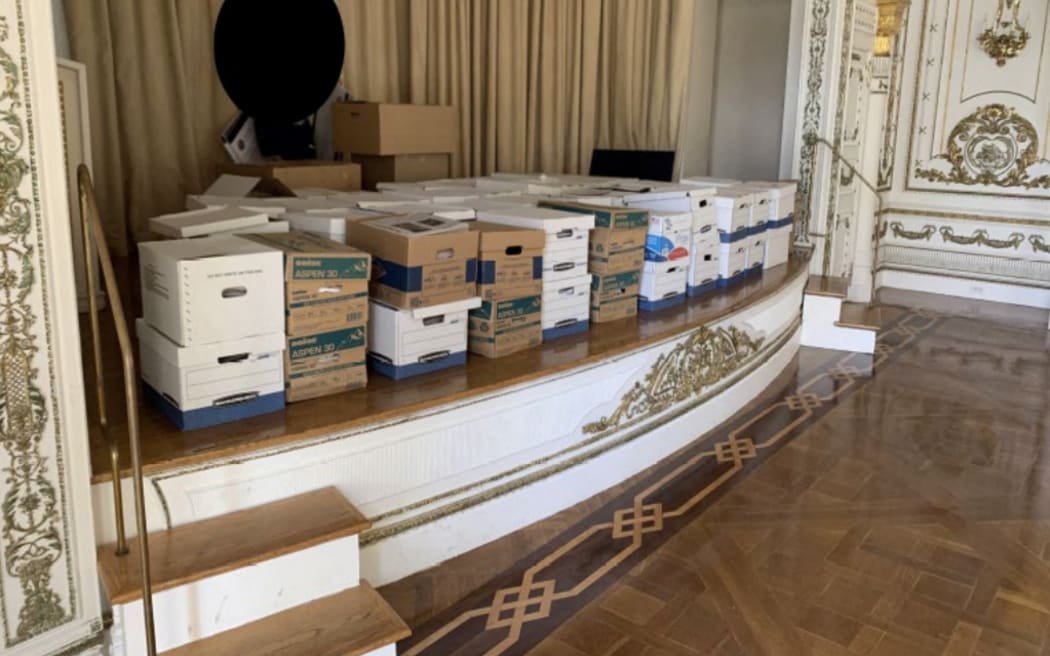
The indictment included a photograph alleged to show classified documents in a ballroom. Photo: AFP
The other is an account of a meeting with a political aide in August or September 2021 where Trump displayed a classified map of another country and told the person that an ongoing military operation there was not going well.
The first episode undercuts one of the former president's potential defences to the charges - that he declassified all the material before leaving the White House.
It also underscores how Trump was allegedly careless with classified material, using it to make points in casual conversation.
Trump asked his lawyer: 'What if we don't play ball with them?'
The alleged mishandling of classified documents is only one part of the case against Trump. The others involve charges of obstruction of the investigation and lying to and misleading investigators.
On Thursday evening, Jim Trusty, one of Trump's lawyers had described the prosecution as "ludicrous" and the charges as a "kind of a crazy stretch".
But the indictment says that Trump directed the transportation and storage of the boxes of documents from the very beginning.
According to prosecutors he was "personally involved" in the packing of the boxes at the White House.
He was tracking the movement of the boxes while federal authorities were seeking their return.
And he wanted to be in the room while his lawyers were reviewing the contents of boxes for classified material.
The indictment also alleges he had boxes moved from storage to his home at Mar-a-Lago without the knowledge of his lawyers, and that he had classified material transported to his golf club in New Jersey before the Mar-a-Lago search.
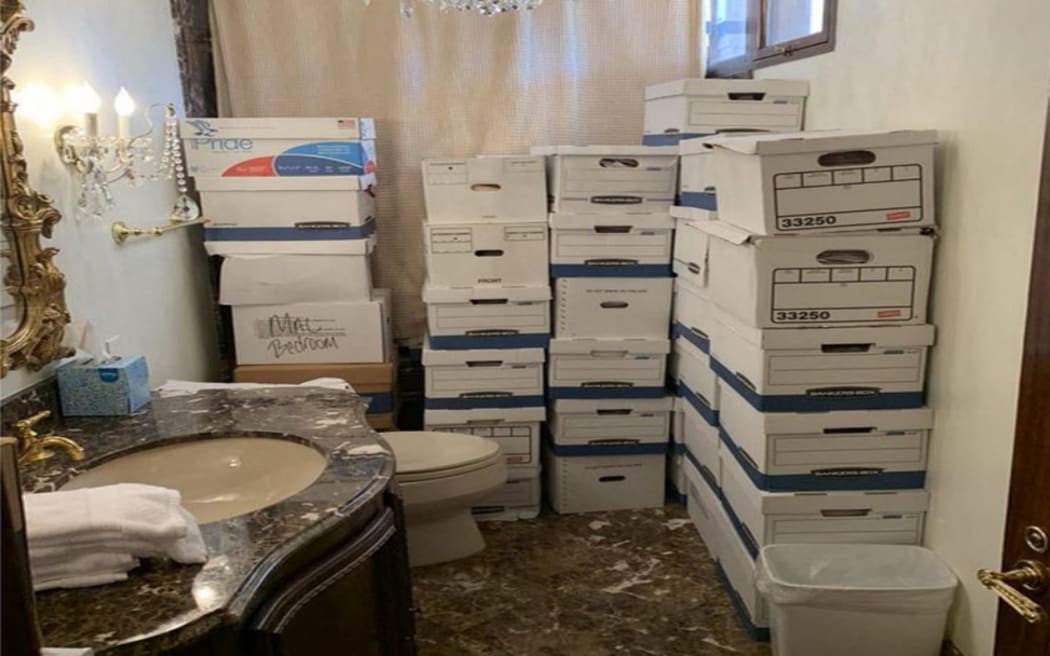
Boxes of documents were stored in a bathroom at Mar-o-Lago. Photo: AFP
When aides asked Trump what they should tell federal investigators, the indictment states that he instructed them to lie.
To support these allegations, the indictment details video surveillance footage, text messages and photographs from Trump aides, employees and family, and testimony from witnesses.
One of Trump's lawyers, identified as Trump Attorney 1, told investigators the former president said the following:
- I don't want anybody looking through my boxes, I really don't, I don't want you looking through my boxes
- Well, what if we, what happens if we just don't respond at all or don't play ball with them?
- Wouldn't it be better if we just told them we don't have anything here?
- Well isn't it better if there are no documents?
"The biggest obstacle in cases of this kind is proving intent," says David Super, a law professor at Georgetown University.
"But the indictment provides an enormous volume of very specific information showing Trump's personal awareness and involvement, including his proposing that various statements be made to investigators that he knew were false."
The prosecution has now set out its case against Trump in broad strokes. The indictment, however, is just the beginning. Now special counsel Jack Smith and his team have to prove their assertions in court - and in front of a Florida jury.
- BBC

